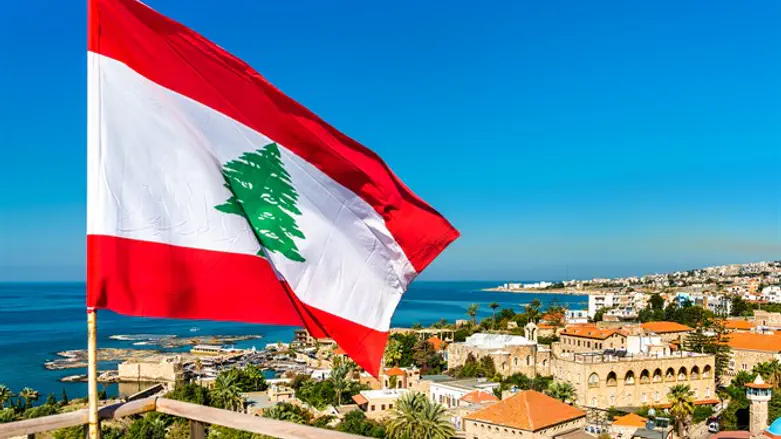
Around 200 meters from the Israeli border with Lebanon, at the UN base in Nekura, official discussions commenced on Wednesday morning between representatives of the two countries, with the aim of reaching an agreement on their maritime border.
Due to concerns about transmission of the coronavirus, the meeting between the leaders of the two delegations took place in a large, air-conditioned tent.
The progress of the discussions is being followed by US Ambassador to Algeria John Desrocher, who has been assigned as the mediator between the two countries.
Just hours before the meeting, the Hezbollah terror organization made a public announcement stating (not for the first time) that it opposes the composition of the Lebanese delegation and claiming that this “represents a severe blow to Israel’s hopes of attaining normalization (as quoted by Kan News).
However, a senior Israeli official involved in the negotiations stated that: “We are commencing negotiations with Lebanon with a pragmatic and realistic approach. We have a limited goal – namely, to fix the maritime border between the two countries.”
He stressed that the aims of the discussions between the two countries do not include a process toward normalization of relations and certainly not a peace treaty. “This is unlike our negotiations with the United Arab Emirates. Three years of preparatory work including comprehensive background negotiations and American mediation went into this meeting at Nekura, despite our having such a defined and limited goal. We are treating the issue at hand as something merely technical and economic in nature [as opposed to diplomatic].”
Nonetheless, the economic stakes for the outcome of the discussions are high, and the official clarified that, “We would very much like to resolve this issue, since for the last decade, it has prevented us from making progress on the extraction of natural resources in the region – both natural gas and petroleum.”
He noted that a resolution of the maritime border issue would be to the mutual economic benefit of the two countries and that, “this is the reason why the Energy Ministry is essentially leading the negotiations on our side, rather than other official bodies.”
The Israeli delegation is headed by the director-general of the Energy Ministry along with the head of Minister Yuval Steinitz’s office. “If the other side similarly takes a pragmatic approach, then I hope that we will be able to reach our goal,” the official continued. “And, of course, if the other side decides instead to take a confrontational approach, everyone will lose out.”
He explained that, “Extracting oil and gas reserves instead of importing them will ultimately save billions of dollars for the Lebanese economy. Israeli has other natural gas resources that suffice for our needs and in fact, we have a surplus that we export. Therefore, if the Lebanese come with a pragmatic approach, we can make good progress. And that’s surely better than continuing in the current stalemate situation for yet another decade.”